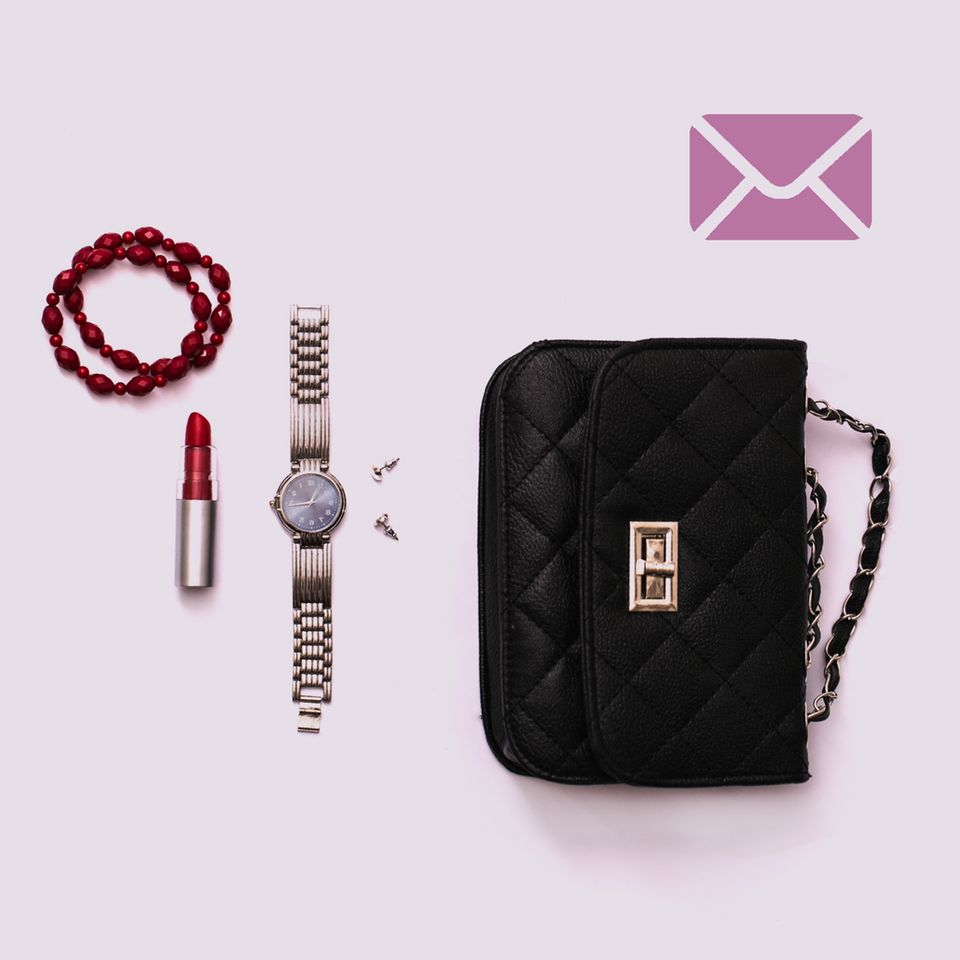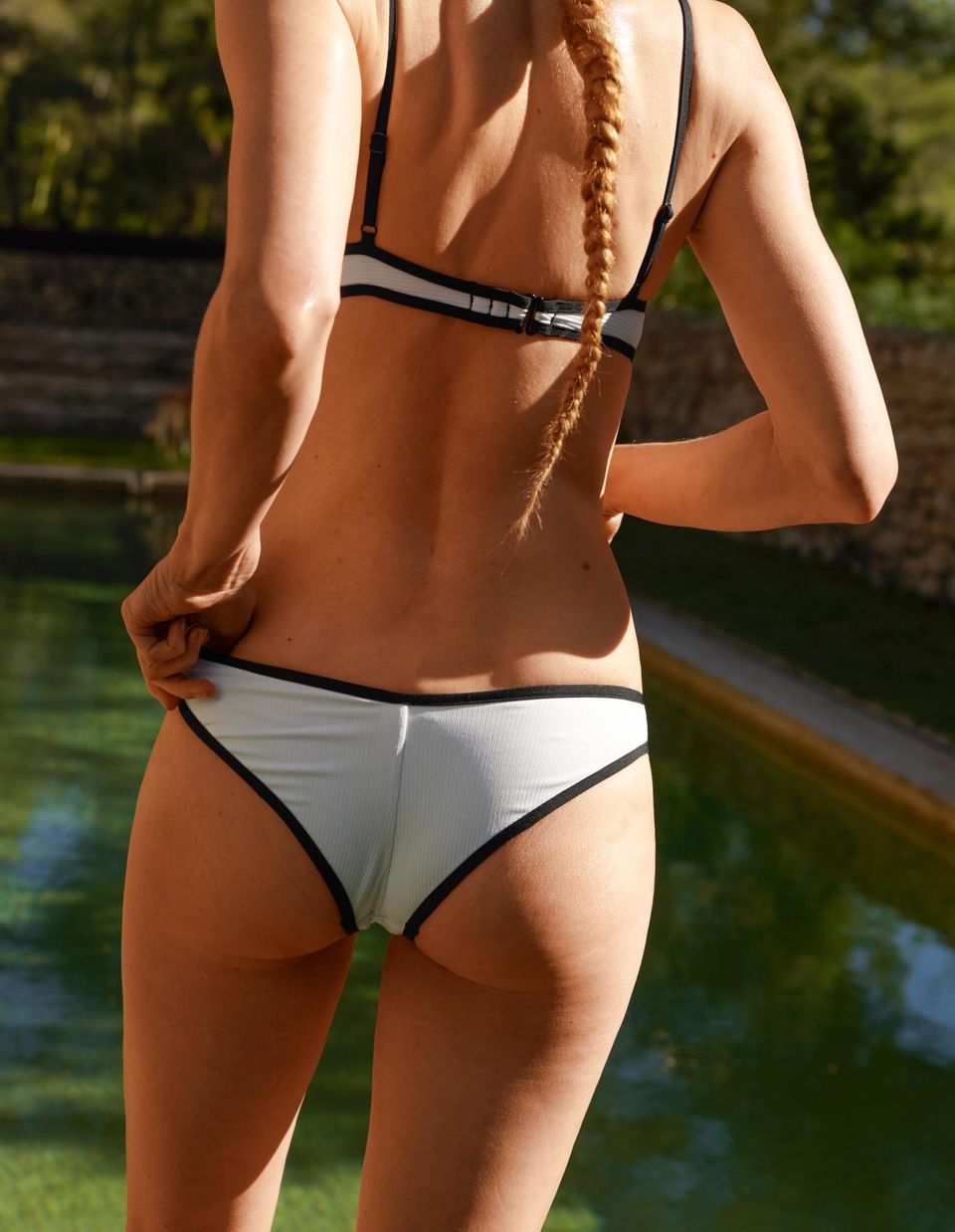Professional explains: Tips and tricks to combat sweating in summer

Sure, it's perfectly normal, especially now, in the summer. But sometimes it just gets too much and annoying. What can reliably help then – the best professional tips.
Sport, heat, stress – especially in higher temperatures we quickly start to sweat because this is how our body regulates its temperature. Depending on our predisposition, we secrete around half a liter of sweat a day without noticing, even without exertion or heat. If we are active, it can be several liters. Sweat is actually colorless and odorless. Its unpleasant smell only develops when skin bacteria break it down – especially under the armpits and in the genital area, where it also contains proteins and lipids. If wet skin, stains on clothing or a pungent smell bothers you, in addition to wearing lighter and looser clothing (preferably made of natural fibers), avoiding spicy spices, alcohol and caffeine, using the right deodorant or antiperspirant, or even consulting a dermatologist can help.
Cosmetic scientist Dr. Meike Streker gives tips against excessive sweatingEspecially at higher temperatures we quickly start to sweat.
© Ansgar Sollmann
Shiny face and sweat-drenched hair? A simple braid will cool your neck. If UV protection and makeup are sweating off, special creams or gels can help. "They usually contain aluminum chloride hexahydrate and aluminum chlorohydrate – currently the first choice for combating perspiration," says cosmetic scientist Dr. Meike Streker. Contrary to long-held belief, we hardly absorb aluminum through our skin; recent studies and the German Federal Institute for Risk Assessment (BfR) classify it as largely harmless. Antiperspirants have a preventative effect; they are ideally applied to cleansed skin in the evening and tighten sweat pores overnight. The same applies to gels or sprays specially developed for the scalp.
Hand and footThey are hotspots for sweat glands: the palms of the hands and soles of the feet have a good 400 glands per square centimeter. Aluminum salts also help dry these areas. Sprays, wipes, or creams are practical for the hands, and powder for the feet is also effective. Iontophoresis is often successful: the prescribed direct current treatment in a water bath on the hands and feet is first performed at the doctor's office, then with a loaner device at home, initially five times, then once a week.
Less is more"Excessive sweating on the palms or soles of the feet, underarms, face, or head is called hyperhidrosis," explains dermatologist Dr. Christian Merkel from the Skin and Laser Center at the Munich Opera. Around one percent of Germans suffer from it. His recommendation: "Over-the-counter antiperspirants containing aluminum hydroxide, or prescription solutions or gels containing the salt." He also often prescribes a cream containing the active ingredient glycopyrronium, which – similar to Botox – inhibits nerve impulses to the sweat glands and thus inhibits their production (e.g., "Axhidrox").
Do you need a deodorant or an antiperspirant?
© Ansgar Sollmann
Often taboo, but important to discuss. Overly hygienic, alkaline soaps, or alcohol-based deodorants can be harmful to the intimate area. This helps: gentle cleansing, trimming hair, wearing cotton underwear if necessary, and special deodorants for the area that avoid mucous membranes. A new approach: deodorant suitable for all areas of the body. Dove has developed just that. "The cream in our new range contains zinc, among other ingredients, to reduce odor-causing bacteria and provide nourishment. The pH-neutral cream and deodorant stick are gynecologically tested," reveals Sarah Schüddekopf, Research and Development at Dove.

So, do you need deodorant or antiperspirant? "For moderate sweating, the combination is the perfect match," says cosmetic scientist Dr. Meike Streker. Use an antiperspirant in the evening as needed to reduce sweating, and then deodorant in the morning to combat odor. For very heavy sweating, 10 percent aluminum salt content is the guideline. Long-acting antiperspirants from the pharmacy usually contain up to 15 percent and are effective for up to a week. But please only apply to intact, clean, and completely dry skin. It is more sensitive when wet and reacts more easily to ingredients. Tip: Quickly blow-dry your skin beforehand!
Professional treatmentsIf deodorants, antiperspirants, and anti-sweat medications fail, medical treatments can help. "We most commonly treat hyperhidrosis with botulinum toxin," says dermatologist Dr. Merkel. "It inhibits the sweat glands and lasts up to six months." One long-term surgical treatment is "miraDry" for the underarm area. The procedure cauterizes sweat glands using microwaves under local anesthesia. "Surgical removal of sweat glands is also possible, but the glands often grow back after a few years," says the doctor. Disturbing scars can also occur.
On the bodyWhat we consider normal during exercise is rather annoying in everyday life: sweating on the chest and décolleté. Heat builds up under the breasts, and friction is added to this. "Antiperspirants can, in principle, be used here as well," says Dr. Streker. Body Glide Sticks or body powder help prevent sore spots. "And only use gentle cleansing," says Streker, because the skin here is often sensitive. "Zinc compounds also gently and effectively limit any potential odor." Sage extract (e.g., in tablets) can also reduce overall sweat production.
Brigitte
brigitte





